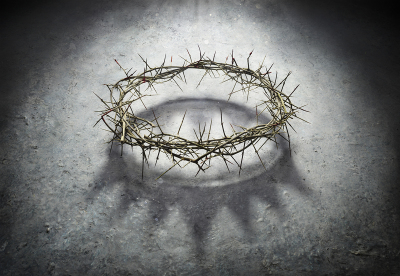
Easter is the central miracle upon which the entire Christian faith is based and even depends. Yes, Christmas has more pageantry, and especially for Westerners, it has a longer season than Easter. But without the resurrection of Jesus — His overcoming sin and death for our sake, Christmas is nothing more than the celebration of yet another famous person’s birthday. It’s Easter that makes Christmas meaningful.
Now, every Easter there are the inevitable distractions and misdirections from the centrality of Jesus’s resurrection from the dead like the inevitable documentaries trying to debunk the historical accuracy of the resurrection with titles like “The Secrets of Easter” or “What the Church Doesn’t Want You to Know About the First Easter.”
This year, during Holy Week, some of the distractions are centering around what seems like an obviously Christian phrase: “Christ is King.” Some would say that the phrase is simply an utterance of a core Christian belief that goes back 2,000 years, that Jesus, as the Messiah and redeemer of all of humanity, is King over all creation.
But there are reports of those using this phrase as an antisemitic dog whistle, using it to mask their rhetoric and shield it from criticism by Christians who would otherwise disagree with them. I think of Andrew Tate and SNEAKO, two famous converts to Islam who have actually tweeted “Christ is King” — which is as far from an Islamic belief as it gets — perhaps as a way of criticizing Jews and rally Christians behind them.
Recent history gives us examples of groups turning straightforward phrases into propaganda to sow division and then shield themselves using those same phrases. But at its core, beyond all the rhetorical machinations and social hand wringing, is the original meaning behind the claim that Jesus Christ is King, and it’s not about conquering one set of people for the benefit of others or vanquishing people with whom we disagree. No, Christ is King because He’s no longer dead, and He hasn’t been ever since that first Easter, 2,000 years ago.
For centuries, earthly kings have ruled both benevolently and tyrannically over vast territories, but with all their power and might they all have or will succumb to death and decay. The empires they’ve ruled have either declined or totally fallen. Where earthly kings perish, Christ the King lives. Where earthly kings fight, Christ the King forgives.
I’m reminded of the poem often credited to John Stott called “The Thorn-Crowned King:”
Full many a king a golden crown has worn,
But only one a diadem of thorn:
Full many a king has sat on jewelled throne;
But only One hung on a Cross alone:
Through garlanded gay streets, cheered by the crowd
Great kings have ridden — One, with His head bowed
Beneath the burden of His Cross, passed on
To die on Calvary, one King, but one:
All other kingdoms pass; are passing now —
Save His who wore the bramble on His brow.
Christ is king because He conquered death, the adversaries to which all kings on this Earth have fallen or will fall. Though Jesus’s Kingdom is not of this world, it is a kingdom that beckons all of us — rich or poor, powerful or meek, white or black, male or female, Gentile or Jew — to find hope in the Lamb who was slain and the King who rose from the dead.
In Ephesians 2:14-16, Paul speaks of the unity of Jews and non Jews in Christ: “For he himself is our peace, who has made the two groups one and has destroyed the barrier, the dividing wall of hostility, by setting aside in his flesh the law with its commands and regulations. His purpose was to create in himself one new humanity out of the two, thus making peace, and in one body to reconcile both of them to God through the cross, by which he put to death their hostility.”
Paul undercuts the use of Christ as King to hurt people. If someone says Christ is King to hurt others, they don’t understand what it actually means for Christ to be the King — the king who kills hostility. It’s Jesus’s resurrection that proved what Jesus set out to do and did, in fact, accomplish.
Don’t get distracted from that truth this Easter.
Abdu Murray is a speaker, author, and attorney who specializes in addressing issues where religious faith and emerging cultural trends intersect and collide. Since founding Embrace the Truth in 2004, Abdu has spent decades analyzing how the major religious and non-religious thought traditions have attempted to address emerging cultural issues. He has written four books, including Saving Truth, Grand Central Question, Apocalypse Later and More than a White Man’s Religion. His words have been featured in Fox News, Christianity Today, The Washington Times, The Christian Post and The Western Journal.


















